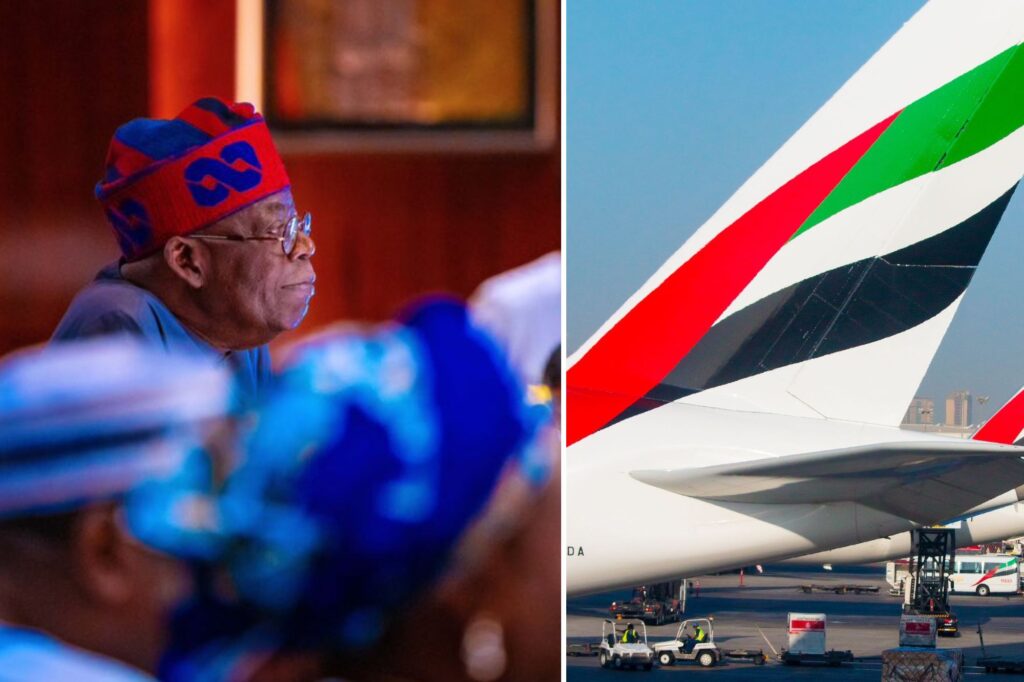“We are a family in UAE; we only live in separate rooms but in the same house.”
This is how Nigeria’s newly-elected President Bola Ahmed Tinubu described his country’s relationship with the United Arab Emirates (UAE).
In a speech given at the inaugural Federal Executive Council on August 25, 2023, Tinubu expressed that he was prepared to intervene personally to solve the impasse between Nigeria and the UAE.
The council included a ceremony to welcome foreign diplomats, including the new UAE ambassador to Nigeria, Salem Saeed Al-Shamsi.
“We are a family with the UAE. We only live in separate rooms, but we are in the same house. We should look at the issues as a family problem and resolve it amicably. As you know, in every family, there are peculiarities. You can have an erring son or daughter, but we must work together. We need to agree on core aviation and immigration issues,” Tinubu said in his speech.
The UAE ceased issuing visas to Nigerian citizens in 2022, following Emirates’ suspension of flights to Lagos Airport (LOS) due to difficulties in repatriating funds from ticket sales.
“Without the timely repatriation of the funds and a mechanism in place to ensure that future repatriation of Emirates’ funds do not accumulate in any way, the backlog will continue to grow, and we simply cannot meet our operational costs nor maintain the commercial viability of our operations in Nigeria,” an Emirates spokesperson said in a statement to Reuters on November 2022.
In February 2023, Tinubu’s predecessor, Muhammadu Buhari, called for a resumption of Emirates’ Nigerian operations, and directed the Central Bank of Nigeria to make more foreign currency available to the Emirati flag carrier and other foreign airlines affected by the country’s stringent foreign currency export controls.

